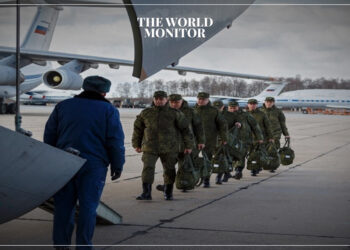The ongoing crisis in the Red Sea is causing significant disruptions in the shipment of various products, ranging from coffee to fruits, and threatens to slow down the recent easing of food price inflation, providing much-needed relief to consumers worldwide.
To avoid attacks by the Houthi rebels in this vital waterway, food-laden ships are now navigating around Africa, leading to longer and costlier routes.
Unlike shipments of gas, oil, and consumer goods, the extended shipping duration poses a risk to perishable foods, making them potentially unsalable upon arrival.
This crisis is causing alarm within the industry. Italian exporters are particularly worried about perishable items like kiwi and citrus fruits spoiling en route.
Similarly, shipments of Chinese ginger are becoming more expensive, and some African coffee shipments have been delayed.
Grain shipments that typically pass through the Suez Canal and livestock carriers headed to the Middle East have also had to reroute.
Although the impact has been limited so far, it serves as a reminder of the fragility of global food supply chains. If disruptions worsen, they could hinder the recent decline in food commodity prices, which has started to reflect in lower grocery bills.
Nitin Agrawal, Managing Director of Euro Fruits, a leading Indian grape export company, stated, “Everyone is a loser in this situation.”
The company’s usual Red Sea route to Europe now takes a much longer path, quadrupling shipping costs and doubling transit time.
This means a decrease in grape quality and an increase in prices for European importers, making Indian grapes more expensive for consumers, as Agrawal explained.
The European Union (EU) depends on India for about one-seventh of its grape supply, with this figure rising to over 35% during the peak season in March and April, according to Freshfel, the European Fresh Produce Association.
Massimiliano Giansanti, president of Confagricoltura, an Italian agriculture group, expressed concerns shared by Italian exporters, who annually sell agricultural products worth approximately $4.4 billion to Asia. They are worried about the freshness of fruits like apples, kiwis, and citrus, and the increased costs due to rerouting shipments around Africa.
Similar concerns affect meat shipments, as Indian buffalo meat shipments to North Africa are experiencing delays, according to Fauzan Alawi, a spokesperson for the All India Buffalo and Sheep Meat Exporters Association.
Farmers are also feeling the strain, as they might have to reduce prices to offset higher shipping costs.
Sandeep Daga Sanandan, a grape farmer in Maharashtra, India, where the harvest has begun in some areas, said, “We have to sell the crop even if prices fall because we cannot prolong the harvest period. Exporters can usually cover their costs, but we alone bear the losses if prices drop.”
Shipping issues are also a concern for European exports of products like pork, dairy, and wine, as well as imports of tea, spices, and poultry.
The full extent of these problems is yet to be determined, according to the European Committee of Food and Agricultural Trade (CELCAA), representing agricultural food traders.
Additionally, Kpler, an intelligence firm, reported that ships carrying about 1.6 million tons of grains heading towards the Suez Canal have altered their routes in recent weeks. Most of these shipments are crops destined for China and Southeast Asia.






